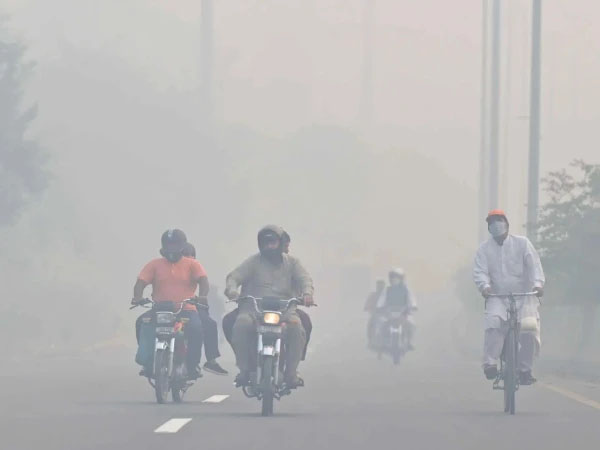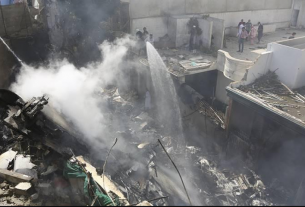Lahore: Air pollution and smog levels across Punjab continue to worsen, with Faisalabad now ranking as the most polluted city in the province.
According to data from global air quality monitoring organization IQAir, Faisalabad tops the list with an Air Quality Index (AQI) of 554, followed by Gujranwala (546) and Multan (478). Lahore recorded an AQI of 471, while Bahawalpur stood at 389.
Official figures show even higher readings in some areas: Dera Ghazi Khan, Gujranwala, and Kasur recorded AQI levels of 500, while Lahore reported 447, Faisalabad 408, and Multan 352.
In Lahore, air quality in several neighborhoods reached extremely hazardous levels. The Forest Department Office (Ravi Road) recorded 980, G3 Engineering Council 790, and DHA Phase 8 759. Meanwhile, according to Punjab’s Air Quality Index, Barki Road and Egerton Road were both at 500, Wagah Border at 394, and Safari Park at 384.
The Smog Monitoring and Forecasting System reported that winds are currently blowing from east to west, carrying polluted air from India’s Haryana, Ludhiana, Patiala, and Jalandhar regions into Pakistan. These polluted winds are impacting air quality in Lahore, Faisalabad, Kasur, and Gujranwala.
Experts warn that smog and fine particulate matter have intensified pollution levels, with AQI expected to remain between 330 and 370 today.
According to the Environmental Protection Department, Lahore’s air quality will remain unhealthy, particularly in the early morning, evening, and night hours, with slight improvement possible in the afternoon (1–5 PM). Citizens, especially children, the elderly, and patients, are advised to avoid unnecessary outdoor exposure.
Punjab’s Senior Minister Maryam Aurangzeb stated that under the directives of Chief Minister Maryam Nawaz Sharif, anti-smog measures have been accelerated. Twelve departments are implementing a joint action plan. Over 10,000 notices have been issued for stubble burning, more than 190 factories and kilns inspected, with dozens sealed and heavy fines imposed.
She added that only environment-friendly zigzag technology brick kilns are permitted to operate. Over 1,200 monitoring teams are active, ensuring dust control compliance at construction sites. The Punjab government remains committed to protecting public health, eliminating smog causes, and restoring clean air across the province.



